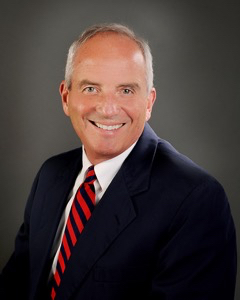Tearing down walls between Michigan’s 15 public universities
Michigan’s public higher education must evolve to provide an affordable, accessible, meaningful and quality education for all Michigan university students.
Michigan does not operate a centralized system of higher education. Unlike other states, Michigan taxpayers fund 15 separate university budgets including separate boards of trustees, administrative staffs, and presidents. Each of these institutions annually pursues state appropriations for their respective operation budgets and to fund separate capital projects. Each of these university boards then sets tuition and room and board costs to hopefully cover the ever-increasing cost of higher education.
This is all done in the environment of a decreasing student-aged population and increasing costs. It is estimated that less than 25 percent of higher education students in the United States are pursuing their education on-campus in a traditional model. The competition for these students is intense with winners and losers.
Those institutions that have not adjusted to the technological demands in teaching in learning are feeling the biggest pinch. Students expect to have access to higher education online and off-campus. For various reasons universities are expected go to the student rather than wait for student to come to them. In other words they must increase their higher education footprint in non-brick and mortar methods of teaching and learning.
To avoid an institutional death spiral, it may be wise for those Michigan universities feeling the budget pinch to consider inter-governmental forms of consolidation, affiliation, and integration. Rather than change the structure of higher education in Michigan, it may be more expedient to change the process.
The Urban Cooperation Act of 1967 may provide a legal mechanism and solution for public agencies like state universities to create an interlocal agreement and a public authority to cooperatively promote the delivery of public goods like higher education while protecting employee rights. The act has been used by other public agencies since its creation in 1967 and allows and promotes governmental units to work together, including raising revenues for operations, technology, and capital projects.
So why wouldn’t state universities look to such a legal model to provide student access to their unique learning opportunities?
The three Upper Peninsula universities are poised geographically to use this state law. Unlike most of the other state universities, the Upper Peninsula universities have access to an abundance of natural resources like water, minerals, animals, and forests. So why couldn’t an environmental student at Central Michigan University study fish health at Lake Superior State University’s renowned aquatic laboratory on the St. Mary’s River?
We Michiganders have so many higher education assets to share with all students in Michigan. It may be time for the universities to step outside their silos and look to what can be accomplished collectively to promote an affordable and accessible higher education in Michigan.
Such an effort among the state universities would require some work but above all it requires trust, innovation, and cooperation with a bit of disruption on behalf of all of our students. It is time to tear down the walls inhibiting the free flow of knowledge and learning among the 15 state universities.
See what new members are saying about why they donated to Bridge Michigan:
- “In order for this information to be accurate and unbiased it must be underwritten by its readers, not by special interests.” - Larry S.
- “Not many other media sources report on the topics Bridge does.” - Susan B.
- “Your journalism is outstanding and rare these days.” - Mark S.
If you want to ensure the future of nonpartisan, nonprofit Michigan journalism, please become a member today. You, too, will be asked why you donated and maybe we'll feature your quote next time!


 Patrick Shannon is an attorney who serves as board chair for Mackinac Straits Health System and teaches education law for Central Michigan University.
Patrick Shannon is an attorney who serves as board chair for Mackinac Straits Health System and teaches education law for Central Michigan University.